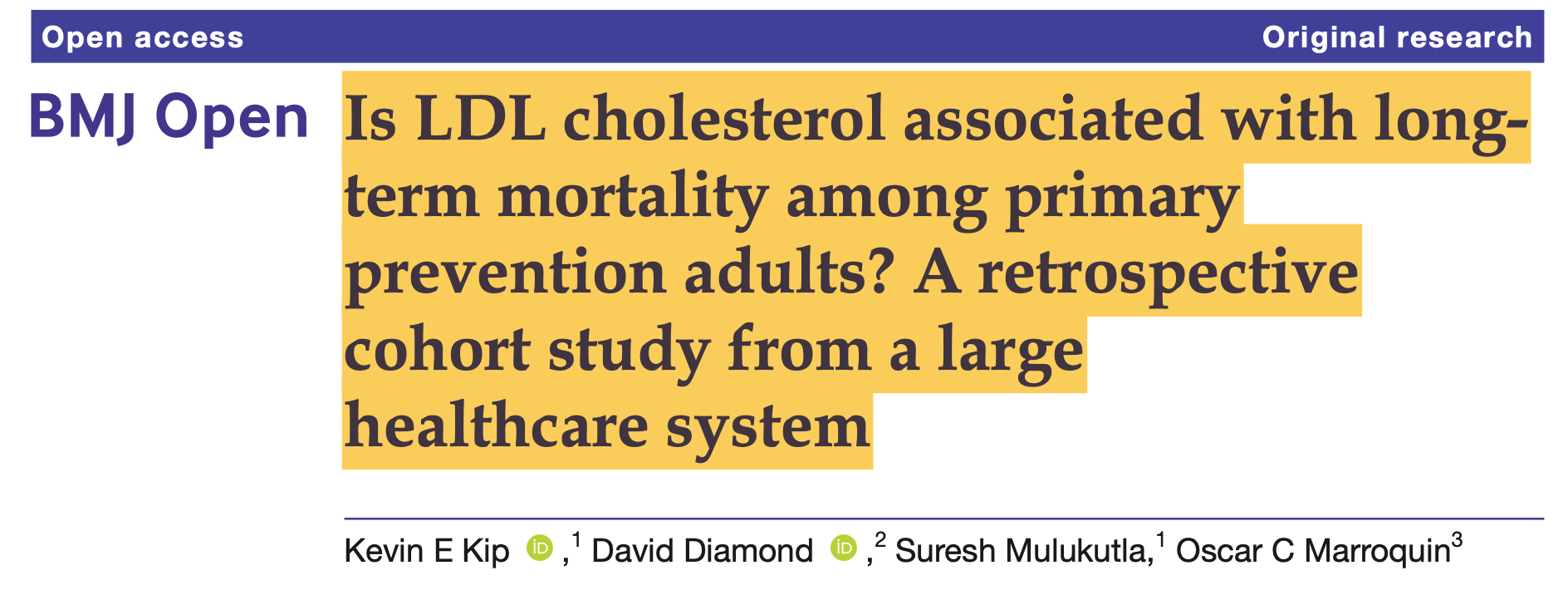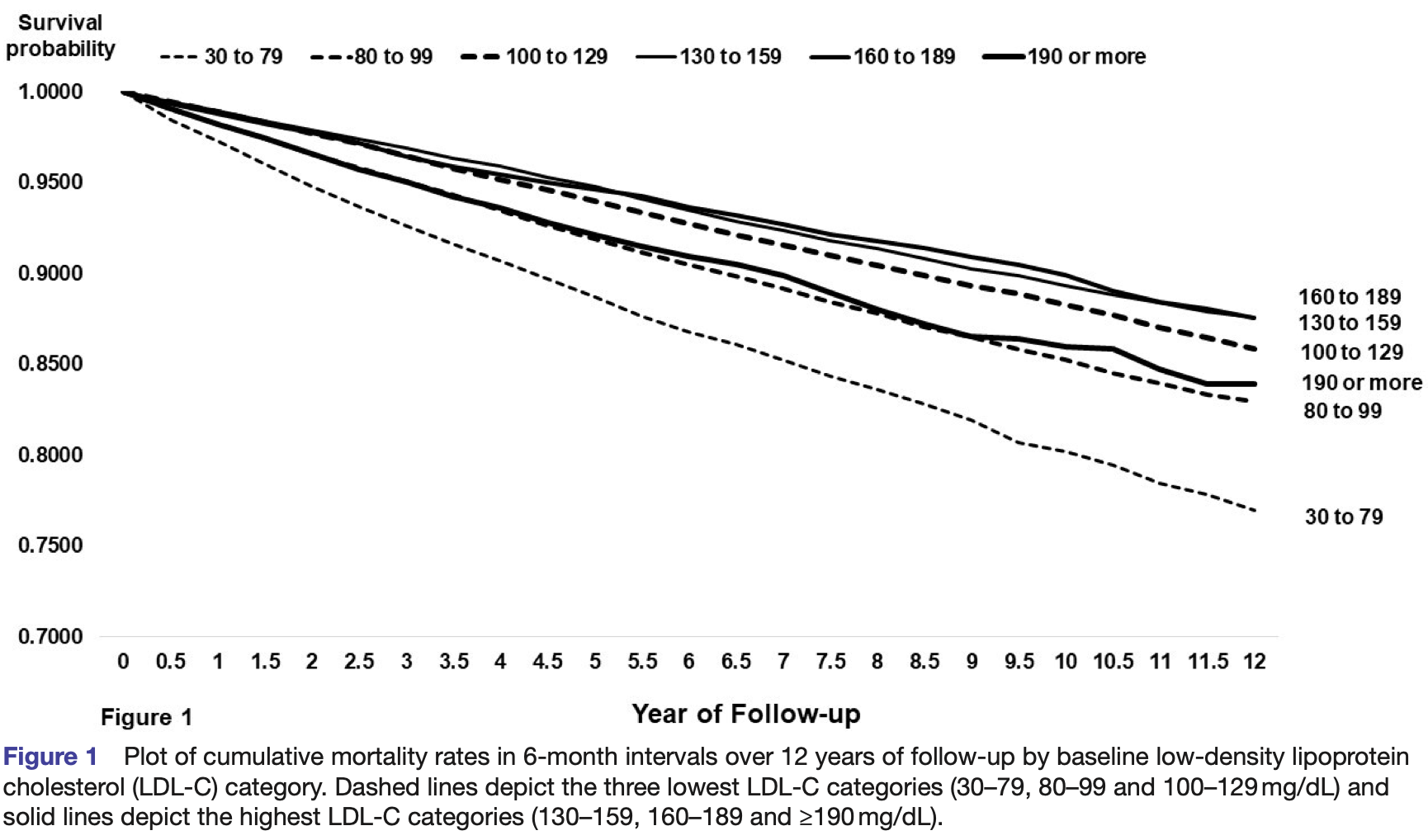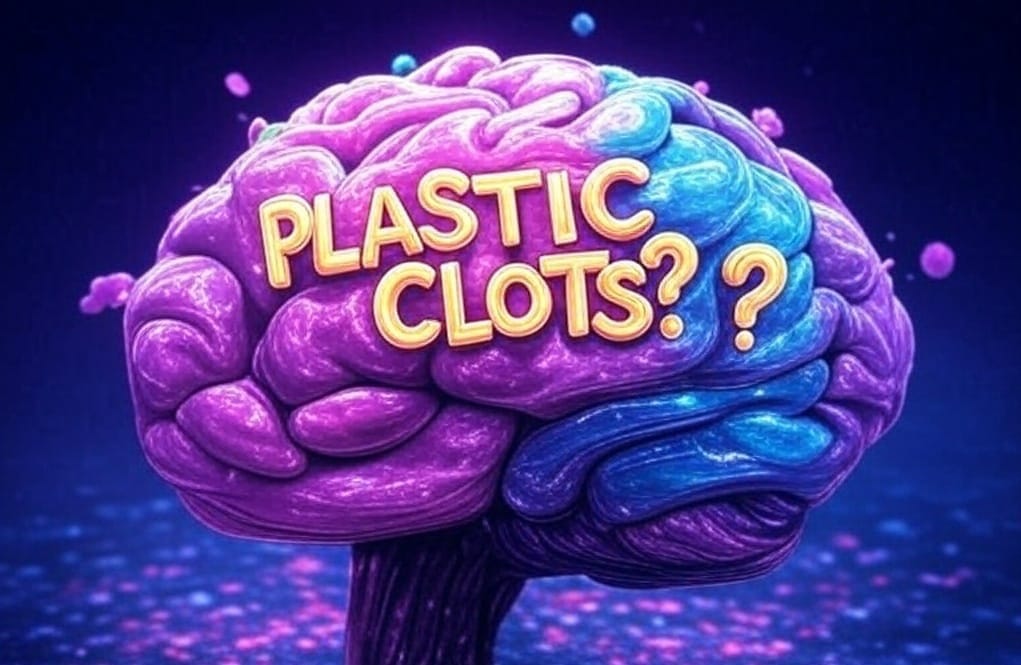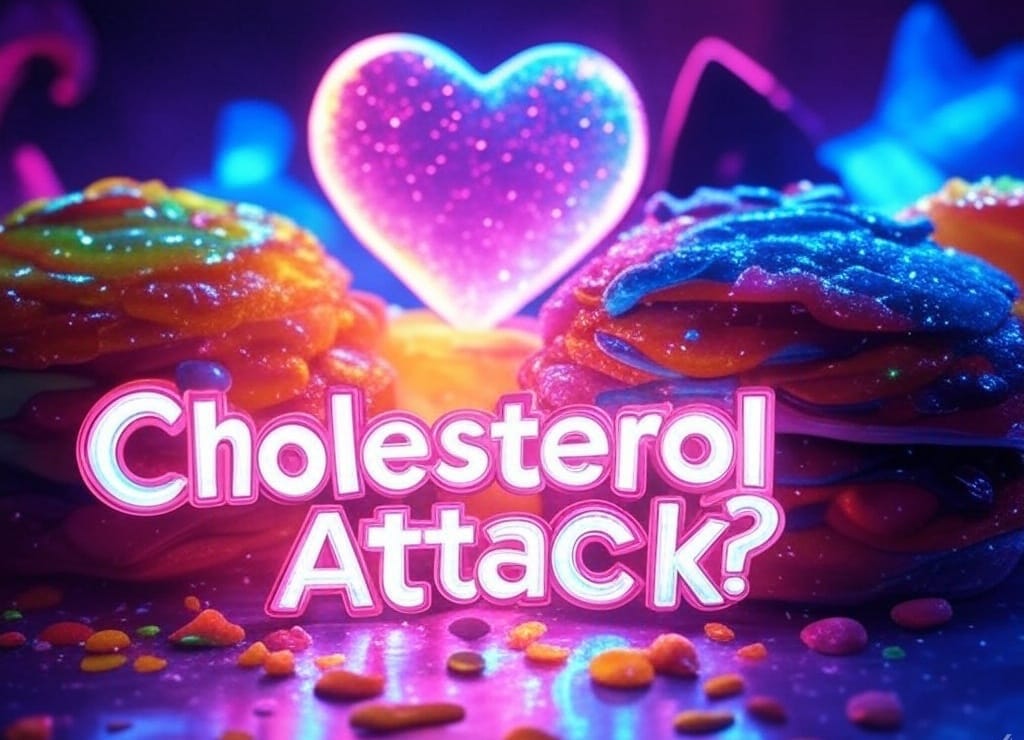When you think of cholesterol, you might imagine a villain from a 90s health scare movie, lurking in your arteries, plotting to give you a heart attack. But wait! Is cholesterol really the baddie we've been led to believe? Let's dive into a fascinating study that might just flip your cholesterol script on its head.
The Study Scoop

The study in question, published in the BMJ Open, tracked over 177,000 people for more than 22 years to see if LDL (Low-Density Lipoprotein) cholesterol, often dubbed "bad cholesterol," was indeed the harbinger of doom. The title? "Is LDL cholesterol associated with long-term mortality among primary prevention adults?" Now, don't let the title scare you; it's just asking if having high LDL cholesterol means you'll kick the bucket sooner.
Cholesterol 101
First off, cholesterol isn't just some nasty substance your body makes to annoy you. Here's the deal:
- Cell Membrane Maestro: Cholesterol helps keep your cells from falling apart, like the mortar between bricks.
- Brain Booster: Your brain is 20-25% cholesterol. Low levels? Say hello to potential depression, cognitive issues, or even Alzheimer's.
- Hormone Helper: It's the starting material for hormones like cortisol, testosterone, and estrogen. Too little, and you might feel like you've lost your zest for life.
- Vitamin D Maker: Sunlight turns cholesterol into vitamin D, which is crucial for bone health and beyond.
- Bile Buddy: It's involved in making bile, which helps digest those fries you secretly love.
The Plot Twist

Now, for the real shocker. The study found that people with what we'd call "healthy" LDL levels (below 100 mg/dL) were actually more likely to die than those with "high" LDL. Yes, you read that right. The lowest cholesterol group had almost double the 10-year mortality rate compared to those in the “high” group and 40% higher rates than those in the “very high” group.
What Does This Mean for You?
Here's what you should take away:
- Context is King: Cholesterol levels don't live in a vacuum They're influenced by other factors like your HDL (high density lipoprotein cholesterol), triglycerides, and lifestyle choices. Which is why the researchers found that LDL cholesterol results were NOT good predictors of long term health.
- Ratios Rule: This paper, along with many others, indicate that ratios such as Total Cholesterol:HDL, Triglyceride:HDL and APOB:APOA1 ratios are much better at predicting long term risk. We'll be covering these in future posts.
- One Test Wonder? Nope. A single blood test is like judging a book by its cover, you could get the wrong impression. You need multiple tests over time to find what's "normal" for you and to see overall trends and changes.
- Holistic Health: Look at your overall health picture. Obesity, diabetes, smoking, and a couch potato lifestyle all play roles in your health narrative.
The Take-Home
Cholesterol isn't "bad." It's complex, and the narrative around it needs updating. The study suggests the sweet spot for LDL is between 100-189 mg/dL (2.6-4.9 mmol/l) , which is substantial higher than what's often preached by the mainstream media or some doctors.
So, if you're freaking out about your cholesterol, here's your new mantra: Educate yourself, get regular check-ups, and maybe, just maybe, start questioning if everything you've been told about cholesterol is really the full story. And remember, like any good mystery, the truth about cholesterol is nuanced, not black and white.
Final Note
Keep up with the latest research, talk to a healthcare provider who's not stuck in the '90s cholesterol panic, and maybe, enjoy that omelette without the guilt. After all, knowledge is power, especially when it comes to your health.















Discussion